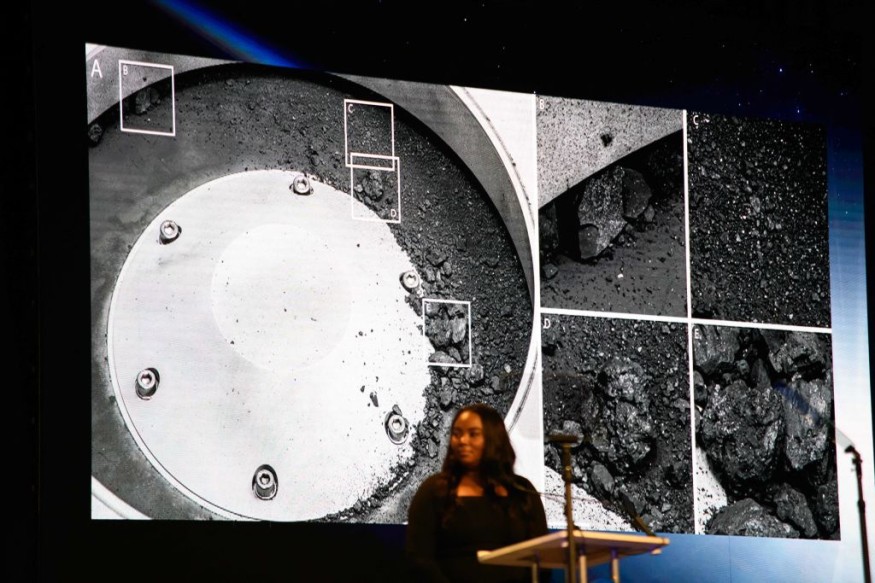NASA has revealed the first analysis of samples collected from the potentially Earth-threatening asteroid Bennu. The mission sent a probe to Bennu in 2020 to collect samples that have now been studied in a Texas lab. The findings indicate that Bennu contains water and a significant amount of carbon, suggesting asteroids like Bennu might have delivered the ingredients for life on Earth.
This discovery could shed light on the origins of life and offer insights into early solar system conditions. Additionally, studying Bennu will aid Earth's defense against future asteroid threats by providing data on its rotation and trajectory.

Biggest Carbon-Rich Asteroid Sample
During a live broadcast at 11 a.m. ET, NASA shared that the asteroid sample collected by the OSIRIS-REx mission is almost 5% carbon by weight, surpassing the mission's goal of 60 grams. This makes it the largest carbon-rich asteroid sample ever brought back to Earth.
Scientists are excited about the discovery as the carbon content is a key element of life. It will help in unraveling the origins of elements that could have played a role in the emergence of life on our planet.
Daniel Glavin, the OSIRIS-REx sample analysis lead, emphasized the significance of the carbon-rich sample, asserting that they selected the right asteroid and retrieved the right materials.
He described it as a dream for astrobiologists, highlighting the importance of this find in understanding the potential role of asteroids like Bennu in delivering pre-biotic chemicals to Earth and potentially triggering life.
The OSIRIS-REx mission collected rock and dust from Bennu in 2020, and the capsule carrying the samples recently returned to Earth, landing in the Utah desert. Bennu was chosen as the target due to its rich organic compound content. Scientists speculate that similar asteroids might have delivered organic building blocks and water to Earth through ancient collisions.
Bennu's proximity to Earth's orbit made it a favorable choice for the mission, which embarked on its journey in 2016, traveled four billion miles, and successfully returned the precious cargo for further analysis.
Asteroid Bennu Samples Contained Waterlogged Clay Minerals
Over the past two weeks, the OSIRIS-REx mission's scientific team meticulously analyzed rocks and dust using various techniques, revealing a "scientific treasure" of carbon and water content, according to OSIRIS-REx principal investigator Dante Lauretta.
Their analysis unveiled abundant water within hydrated clay minerals and carbon in mineral and organic forms, providing potential insights into Earth's water-rich history through asteroid impacts that may have filled our oceans.
The materials also contained sulfur, a crucial element for geological transformations in rocks and biology. The scientists discovered magnetite, an iron oxide mineral that plays a vital role as a catalyst in organic chemical reactions.
These findings are significant as they shed light on the types of minerals that may have played a central role in the origin of life on Earth. The asteroid's composition is rich in carbon, a fundamental element in the building blocks of life, with one sample containing 4.7% carbon by weight.
The surprising abundance of asteroid material has temporarily delayed access to the main compartment of the sample-collecting tool, but scientists are meticulously collecting every grain and finding the view astonishing.
They aim to determine the exact quantity of the material and compare it to samples from Japan's Hayabusa2 mission, collected from the asteroid Ryugu, to explore potential differences between the two asteroids.
RELATED ARTICLE: NASA's OSIRIS-REx Capsule Reveals Mysterious Black Material from Asteroid Bennu Sample, Temporarily Halting Operations for Identification
Check out more news and information on OSIRIS-REx in Science Times.
© 2026 ScienceTimes.com All rights reserved. Do not reproduce without permission. The window to the world of Science Times.









